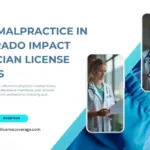Embarking on the journey to practice medicine in the United States as an International Medical Graduate (IMG) is a significant milestone filled with opportunities and challenges. From obtaining ECFMG certification to navigating the residency application process and meeting visa requirements, every step requires careful planning and preparation. This comprehensive guide is designed to answer the most critical questions IMGs have about pursuing a medical career in the U.S., offering expert insights into licensing, residency programs, costs, and state-specific pathways. Whether you’re just starting or refining your plan, this guide will serve as your trusted resource on this transformative journey.
What is the ECFMG Certification Process?
The Educational Commission for Foreign Medical Graduates (ECFMG) certification is a key requirement for IMGs who wish to enter residency programs or practice medicine in the United States.
What are the Steps for ECFMG Certification?
- Create an Account on ECFMG’s Portal (OASIS):
- Register on the ECFMG website and obtain a USMLE/ECFMG Identification Number.
- Verify Medical School Credentials:
- Ensure your medical school is listed in the World Directory of Medical Schools with an ECFMG note indicating eligibility.
- Submit your primary medical qualification documents (e.g., medical diploma).
- ECFMG verifies these credentials with your medical school.
- Pass USMLE Step 1 and Step 2 CK:
- Step 1 focuses on basic sciences.
- Step 2 CK (Clinical Knowledge) tests clinical sciences knowledge.
- Pass the OET (Occupational English Test):
- Starting in 2021, ECFMG requires IMGs to demonstrate English proficiency by passing the OET Medicine.
- Obtain ECFMG Certification:
- Once you pass Step 1, Step 2 CK, and the OET, and your medical credentials are verified, you will receive an ECFMG Certificate.
Why is ECFMG Certification Important?
- It allows you to apply for residency programs via the ERAS (Electronic Residency Application Service).
- You need it to take the USMLE Step 3 and eventually obtain a license to practice medicine in the U.S.
How Can IMGs Apply for Residency in the USA?
Applying for residency in the U.S. is a competitive and multi-step process. Here’s an overview:
- Complete ECFMG Certification:
- This is mandatory to participate in the residency match process.
- Register with ERAS (Electronic Residency Application Service):
- ERAS is the platform used to apply for residency programs.
- Create an account, upload your documents, and apply to programs.
- Prepare and Submit Application Materials:
- Personal Statement.
- Curriculum Vitae (CV).
- Letters of Recommendation (LoRs) – ideally from U.S.-based clinical experience.
- USMLE scores.
- Medical School Transcript and MSPE (Medical Student Performance Evaluation).
- Participate in the NRMP Match (National Resident Matching Program):
- Register for the Match and rank your preferred programs.
- Programs rank candidates, and the algorithm matches candidates with programs.
- Attend Interviews:
- Secure interviews with residency programs.
- Prepare for both clinical and behavioral questions during interviews.
- Participate in the Match Process:
- Match Day occurs in March, where you find out if and where you matched.
Key Considerations:
- US Clinical Experience (USCE): Observerships, externships, or clerkships are highly recommended to make your application competitive.
- Networking: Building connections with program directors and faculty can improve your chances.
What Visas Are Needed for International Doctors? (Common Visa Types for IMGs)
IMGs typically need a visa to participate in residency programs or practice in the U.S.
- J-1 Visa (Exchange Visitor Visa):
- Sponsored by the ECFMG.
- Used for most residency and fellowship programs.
- Requires returning to your home country for two years after completion unless a waiver is obtained.
- Renewable annually during training.
- H-1B Visa (Specialty Occupations Visa):
- Requires the residency program to sponsor it.
- Often preferred by IMGs who want to stay in the U.S. after training.
- Limited to certain specialties and requires passing USMLE Step 3.
- O-1 Visa (Extraordinary Ability):
- Less common but available for physicians with exceptional achievements.
What is the Cost of USMLE Exams? (2025 Fee Structure)
The United States Medical Licensing Examination (USMLE) costs for IMGs include exam fees and additional costs related to travel and preparation.
- USMLE Step 1:
- Registration Fee: $1,000
- International Test Delivery Surcharge: $185–$220 (depending on location).
- USMLE Step 2 CK:
- Registration Fee: $1,000
- International Test Delivery Surcharge: $220.
- USMLE Step 3:
- Registration Fee: $915 (no additional surcharge for international testing).
- Additional Costs:
- ECFMG Certification Fee: $160.
- OET Medicine: ~$455.
- Travel Expenses for Testing: Varies by location.
Total Estimated Costs for Exams:
- Approximately $3,500–$4,500 (including surcharges and fees).
Which States Have Easier Licensing for IMGs?
Licensing requirements vary by state, and some states are more IMG-friendly than others.
IMG-Friendly States:
- New York:
- Large number of residency programs.
- Allows IMGs to begin the application process during their final year of medical school.
- California:
- Many IMG-friendly programs, but note that California requires specific approval of medical schools.
- Florida:
- No additional restrictions for IMGs apart from standard requirements.
- Texas:
- IMG-friendly but requires an additional JP (Jurisprudence Exam).
- Connecticut:
- Straightforward licensing process for IMGs.
- Pennsylvania:
- Welcomes IMGs with a relatively simple licensing process.
Key Considerations:
- Some states have restrictions based on your medical school.
- Others may require additional supervised training or specific exams.
- Check the Federation of State Medical Boards (FSMB) for state-specific requirements.
Conclusion
Successfully navigating the U.S. medical licensing and residency process as an IMG requires careful planning, financial resources, and perseverance. Each step — from obtaining ECFMG certification to securing a visa and completing licensing requirements — is critical to reaching your goal of practicing in the U.S.







